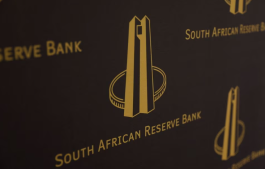Reserve Bank Governor Lesetja Kganyago says apart from the governance failures, the main reason for placing UBank under curatorship was its lack of capital.
Last week, the Reserve Bank announced that it had placed UBank under curatorship with immediate effect.
Kganyago says UBank’s shareholders had failed to capitalise the bank for over two years. Ubank is a small South African lender that mainly offers financial services to families of gold and platinum miners.
Kganyago was speaking at the bank’s financial sustainability virtual briefing on Wednesday.
“The narrative that’s out there that says that UBank could have raised capital in 24 hours, or that they couldn’t raise over a period of two years is not backed up by facts. Our responsibility as the regulator, as the resolution authority, is to protect the interest of the depositors, and the interest of the depositors is protected because there is capital in the bank. UBank had eroded its capital hence it had to be put under curatorship,” adds Kganyago.
Kganyago has since said that the bank will remain open, and customers and staff are encouraged to continue supporting the bank.
He said the move will mitigate against any adverse consequences for depositors and protect the stability of the banking service as a whole.
In the video below, Economics Editor Tshepo Mongoai outlines further details:
Resolution process for failing financial institutions
Meanwhile, the Reserve Bank has indicated that under the latest Financial Sector Laws Amendment Act, the resolution process for a failing financial institution will take place under the management and control of the Reserve Bank.
Among other powers, the bank will have the power to restructure a failing financial institution, either to restore its viability, or to facilitate a sale to another healthy institution.
Kganyago says the new resolution framework gives the central bank powers to provide South Africans with deposit insurance of up to R100 000.
“The amendments that have taken place which was to create cooperation for insurance is covering what South Africa had which was an implicit deposit insurance, which means that South Africa didn’t have deposit insurance. But the fact that we’ve got deposit insurance doesn’t mean that a failing institution cannot be placed under curatorship.”






